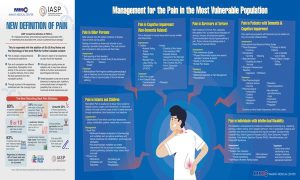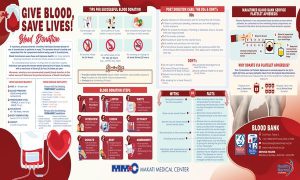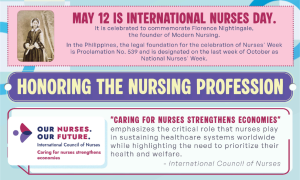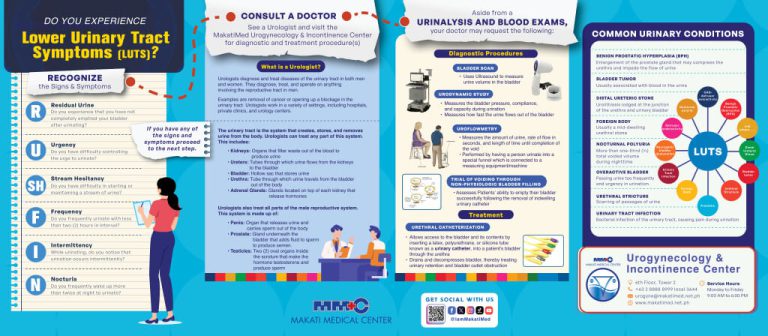It is not an exaggeration to say that the COVID-19 pandemic has dramatically affected how we live our lives. The country endured a sudden spike in positive cases due to the Omicron variant to start 2022 as daily infections skyrocketed to as high as 34,000 by mid-January. While positivity rate has drastically decreased since then, it is early to say when the entire world will be able to take full control of the situation.
The Philippines, and the whole world, has been living with this new coronavirus for more than two years now. This period has already given us information fatigue. To prevent this from taking a toll on everyone’s mental health, everyone must understand what it is and how they can manage it.
What is information fatigue?
Information fatigue, also known as information overload or information fatigue syndrome, is defined as the overload of an individual’s sensations due to the extensive amount of data that they are constantly receiving and processing.
Information Overload: Causes, Symptoms and Solutions author Joseph Ruff argues that information overload hampers our learning and creative problem-solving capabilities.
Individuals and groups should be aware if they or the people around them are battling with this mental struggle through any of the following symptoms:
- Poor concentration
- Polyphasic or multi-tasking behaviors that lead to diminished productivity
- Hurry sickness, or one’s insistence on rushing to keep pace with time
- Chronic irritability that may lead to anger or rage
- Over-stimulation that can cause the brain to enter a trance-like state
- A strong compulsion to frequently check email, voice mail, and the internet to stay in the know
- Traditional stress symptoms like depression, a feeling of “burnout,” and lowered immune response
While some people have already been struggling with information overload over the past two decades, its impact was more acutely felt by people at the onset of the COVID-19 pandemic. Everyone wanted the latest information on this infectious disease that caused the entire world to shut down and change the way we live.
Unfortunately, the constant barrage of information that flooded people’s devices and the frequent policy changes on quarantine and health protocols—alongside the fact that people are anxious to get back to life before the pandemic—have caused mental exhaustion among many Filipinos.
How Information Fatigue Poses a Challenge in Controlling the Pandemic
Over the past two years, world governments have not only dealt with controlling the spread of the virus; they have also been trying to keep the people from panicking by releasing regular updates about the country’s current COVID-19 situation, including treatment options and vaccination status.
However, the amount of misinformation people dealt with during the past two years has greatly contributed to their overall fatigue. The World Health Organization (WHO) listed down specific factors that affected an individual’s motivation towards the pandemic as the following:
- Values and beliefs
- Emotions
- Perceptions
- Intentions
- Experienced hardship
- Risk perceptions
- Complacency
- Boredom
- Perceived inconvenience
- Trust
Most of the factors listed above can be affected by rampant misinformation on social media. According to a study by A.K.M. Najmul Islam and his colleagues, one of the biggest reasons that drive misinformation in social media is people’s diminished self-regulation or inability to regulate their responses to certain emotions and other responses.
Since people are wary of the pandemic, they cling to their devices to look for any means that can help alleviate worries. Once people find something that addresses their fears, they immediately share it with their peers without double-checking whether it is fact or fiction. Their actions continue to propagate the spread of misinformation, making it difficult for the government to ease the people’s worries.
The Department of Health (DOH), in response, has made information dissemination a top priority in their COVID-19 efforts. Their efforts to quell unverified rumors have been documented, and their learnings over the pandemic will likely carry over to future projects.
5 Ways to Deal with Information Fatigue
Combating information fatigue seems like a tall order to accomplish, given how connected the world is nowadays. However, people can take certain steps to keep their mental health in check. Here are the ways an individual can manage information fatigue:
- Take breaks from online devices. The internet constantly produces new information and trying to keep up will only cause burnout. Disconnecting from the web and social media for a day or two will allow the brain to process any new information received.
- Be flexible with recommended changes. It is important to remember that any changes introduced by the government are made with the people’s best interests in mind. Being open to any sudden changes that are introduced will do wonders for your mental health.
- Focus on necessary research and avoid distracting news. Read up on essential updates about the COVID-19 situation from reputable sources. Never take articles from unverified blogs and sources as gospel truth.
- Establish a clear work-life balance. Most people are still struggling with working from home, which adds to their mental exhaustion. Taking measures to ensure work-life balance while working from home can do a lot in one’s battle against information overload.
- Make the most of available technology. Install popup blockers, spam and instant messaging (IM filters), and caller ID and blocking services to your devices. The amount of unnecessary communication one gets also adds to information anxiety, so getting software that helps filter unnecessary information is one way to look after your mental health.
Focus on What Matters
Living in the modern world requires having the ability to digest infinite amounts of information. However, that does not mean that one should consume everything given to them. As the pandemic rages on, everyone needs to focus on information that matters and tune out the rest.
For those in need of help for their mental and physical health, get in touch with the capable doctors of Makati Medical Center. We have outstanding healthcare professionals and top-of-the-line facilities to help address your medical concerns.











